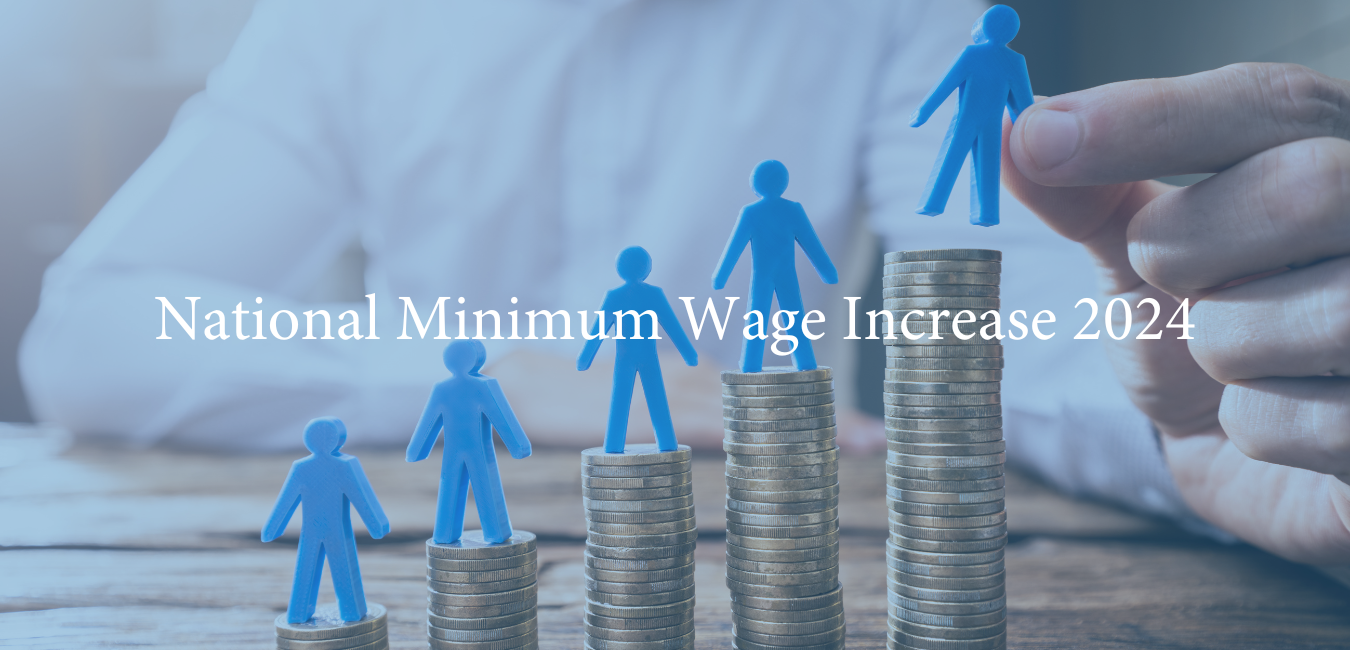What’s new for your business in 2023?
What's new for your Business in 2023?
From capital gains tax allowances being slashed, to a prolonged freeze for many income tax thresholds, it's important to know what to expect to avoid paying any more tax than you need to.
In April the new tax year will bring a number of changes that will impact businesses. Here we look at the biggest tax changes coming in 2023, and what they mean for your business.
Income Tax Rates
At the Mini Budget in September, the government announced a plan to abolish the 45% additional rate of income tax from April 2023. It was announced on 3 October 2022 that the government would not proceed with this plan.
From 6 April 2023, the additional rate will be lowered from £150,000 to £125,140. The additional rate for non-savings and non-dividend income will apply to taxpayers in England, Wales, and Northern Ireland. The additional rate for savings and dividend income will apply to the whole of the UK.
The freeze on personal allowance, and the basic and higher-rate income tax thresholds in England and Northern Ireland was due to lift in 2025-26 but will now be extended to April 2028. They will be £12,570 and £50,270 respectively.
National Insurance
There were a lot of changes to National Insurance in 2022-23, with rates going up by 1.25 percentage points, as part of the government's plan to pay for health and social care.
In September 22, the levy was abolished altogether, and since 6 November 22, the rate employees pay on earnings between £12,570 and £50,270 dropped back down to 12%, from 13.25%. Those with earnings above £50,270 now pay 2%, down from 3.25%. No further changes are expected for 2023-24.
Reduction in the Dividend Allowance
The government will reduce the Dividend Allowance from £2,000 to £1,000 from April 2023 and to £500 from April 2024.
Additionally, from April 2023, the rates of taxation on dividend income will remain as follows:
- the dividend ordinary rate - 8.75%
- the dividend upper rate - 33.75%
- the dividend additional rate - 39.35%
As corporation tax due on directors’ overdrawn loan accounts is paid at the dividend upper rate, this will also remain at 33.75%.
Corporation Tax
The main rate of Corporation Tax will rise from 19% to 25%. However, smaller companies will not have to pay the full rate. It depends on your level of profits for each fiscal tax year.
The current 19% rate will still apply – if your annual profits are at, or below a new £50,000 threshold. The full 25% rate applies to companies with annual profits of £250,000 or more.
Between these two rates, a system of marginal relief will apply. The lower and upper limits will be proportionately reduced for short accounting periods and where there are associated companies.
Capital Gains
Capital gains tax (CGT) is charged on the profits you make from selling an asset, such as a second property or valuable possession.
The government has announced that the capital gains tax annual exempt amount will be dramatically reduced from £12,300 to £6,000 from April 2023 and to £3,000 from April 2024.
Seed Enterprise Investment Scheme
From April 2023, companies will be able to raise up to £250,000 of Seed Enterprise Investment Scheme (SEIS) investment - a two-thirds increase. To enable more companies to use SEIS, the gross asset limit will be increased to £350,000 and the age limit from two to three years. To support these increases, the annual investor limit will be doubled to £200,000.
Vehicles
From 6 April 2023, car and van fuel benefits and the van benefit charge will increase in line with inflation.
The flat-rate van benefit charge will increase to £3,960. The multiplier for the car fuel benefit will increase to £27,800. The flat-rate van fuel benefit charge will increase to £757.
National Living Wage and National Minimum Wage
The government will increase the National Living Wage (NLW) and National Minimum Wage (NMW) from 1 April 2023. The rates will be as follows:
- £10.42 an hour for those aged 23 and over
- £10.18 an hour for workers aged 21-22
- £7.49 an hour for 18–20-year-olds
- £5.28 for 16-17-year-olds
- £5.28 an hour for apprentices
Energy
The current Energy Bill Relief Scheme announced in September comes to an end in March 2023. It supports businesses and public sector organisations such as schools and hospitals by providing a discount on wholesale gas and electricity prices.
The Government has announced a new Energy Bills Discount Scheme (EBDS) from April 2023 to April 2024 for eligible non-domestic consumers in Great Britain and Northern Ireland.
Business Rates for business properties
A rise in your rateable value does not necessarily mean your business rates bill will go up by a similar amount.
Your local council will calculate your bill by multiplying your rateable value by the multiplier set by the government. It will then apply any rate reliefs you are eligible for. Small business rates relief means that some businesses will not pay any business rates at all.
Charitable relief means that registered charities will only pay 20% of their business rates bill. Many charities will not pay any business rates at all.
If your property is in England you can get an estimate of what your business rates bill may be from 1 April 2023 through Find a Business Rates Valuation Service on GOV.UK.
We can help
Whatever 2023 has in store for your business, we will be on hand to keep you up to date with changes. Please contact us for advice on any 2023/24 business related matters. 01733 247 500
Menu
Get In Touch
Tel: 01733 247500
Email: admin@ggmaccountancy.co.uk
Office: Unit 12, Broadway Shopping Centre
Malting Square, Yaxley, Peterborough
PE7 3JJ
Sign Up To Our Newsletter
Contact Us
We will get back to you as soon as possible
Please try again later
Proud Partners Of
Menu
Get In Touch
Tel: 01733 247500
Email: admin@ggmaccountancy.co.uk
Office: 42 Tyndall Court, Commerce Road
Lynch Wood, Peterborough, PE2 6LR
Follow Us On Social Media
Sign Up To Our Newsletter
Contact Us
We will get back to you as soon as possible
Please try again later
All Rights Reserved | GGM Accountancy Ltd | Website designed by Onelink Media









